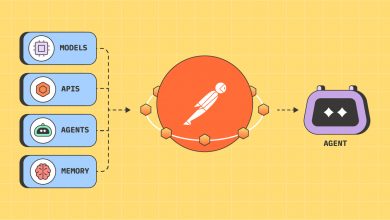Booking.com and OpenAI Personalize Travel at Scale
By integrating its data systems with OpenAI’s LLMs, Booking.com delivers smarter search, faster support, and intent-driven travel experiences.
 As this case study describes Booking.com has partnered with OpenAI to enhance its travel platform using large language models (LLMs), resulting in the AI Trip Planner.
As this case study describes Booking.com has partnered with OpenAI to enhance its travel platform using large language models (LLMs), resulting in the AI Trip Planner.
This tool integrates OpenAI’s GPT models with Booking.com’s data to offer personalized, conversational travel planning.
It addresses the challenge of capturing user intent during the discovery phase, moving beyond traditional search filters to handle open-ended queries like “Where should I go for a romantic weekend in Europe?”
The AI Trip Planner suggests destinations, builds itineraries, and provides real-time pricing and availability. Developed in just 10 weeks, it combines structured and unstructured data for deeper personalization. Early results show increased user engagement, faster searches, reduced support contacts, and higher booking confidence.
The collaboration highlights Booking.com’s shift toward intent-driven travel experiences, leveraging AI to uncover lesser-known destinations and streamline planning.
AI Trip Planner
The AI Trip Planner is a tool developed by Booking.com in collaboration with OpenAI, leveraging large language models (LLMs) like GPT to enhance the travel planning experience. It’s a conversational interface that allows users to plan trips by asking open-ended or specific questions, such as “Where should I go for a romantic weekend in Europe?” or “Find me a beach vacation under $1,000.”
Unlike traditional search tools that rely on rigid filters, the AI Trip Planner understands user intent, processes natural language queries, and provides personalized recommendations for destinations, accommodations, and itineraries.
Key Features:
- Conversational Interface: Users interact with the tool as they would with a travel agent, asking questions in natural language.
- Personalized Recommendations: Combines Booking.com’s structured data (e.g., pricing, availability) with unstructured data (e.g., user preferences, reviews) to suggest tailored destinations and plans.
- Real-Time Data: Provides up-to-date pricing, availability, and booking options.
Itinerary Building: Creates detailed travel itineraries based on user input, including flights, hotels, and activities. - Discovery Focus: Helps users explore lesser-known destinations or options that align with vague or broad preferences.
How It Works:
The AI Trip Planner uses OpenAI’s GPT models to interpret complex queries and Booking.com’s extensive travel data to generate relevant responses. For example, it can suggest a romantic getaway in Santorini with specific hotels and activities, factoring in budget, dates, and preferences, all while pulling real-time availability. The tool was developed in just 10 weeks, showcasing rapid integration of AI into Booking.com’s platform.
Benefits:
- Increased Engagement: Users spend more time exploring options due to the intuitive, conversational experience.
- Faster Search: Reduces time spent navigating traditional search interfaces.
- Higher Booking Confidence: Personalized suggestions and clear itineraries make users more confident in their choices.
- Reduced Support Contacts: The AI handles complex queries, lowering the need for customer service intervention.
Impact:
The AI Trip Planner shifts travel planning from a filter-based, transactional process to an intent-driven, conversational one. It empowers users to discover new destinations and plan trips efficiently, while Booking.com benefits from improved user satisfaction and operational efficiency.
The tool exemplifies how AI can transform industries by combining advanced language models with domain-specific data.



